Are you tired all the time and cannot fathom the reason why? We expect to bounce off the walls with energy and happiness when we sleep well at night. Most people enjoy that benefit, although millions of people across the country feel tired and groggy no matter how many hours of sleep they get at night. If you are among those people, simple changes may be the key to feeling your best once again.
Often, lifestyle changes impact us enough that we feel great with the right amount of sleep. If lifestyle changes do not solve the problem, schedule an appointment with a medical professional. Oftentimes medical conditions cause daytime sleepiness and grogginess. After a medical diagnosis and proper treatment, daytime sleepiness becomes one less issue burdening your life.
Many things may cause you to feel sleepy during the day. Most of us experience this feeling on occasion. It is when you feel tired more often than not that you should worry. Things like the foods that you eat and your pre-bedtime activities may impact how you feel the next day. Or it may be caused by a serious medical condition like restless leg syndrome or sleep apnea.
If you don't think your issues with sleep are due to a medical condition, and simply need customized advice on improving your sleep hygiene, you can try a personal sleep consultation to learn more about your habits and how you can improve.
Now, here's more about some more serious reasons behind your sub-par sleep.
If you're otherwise healthy, but are always sleepy no matter how much sleep you get, you may have Hypersomnia. In short, hypersomnia is a chronic neurological condition that makes you tired no matter how much sleep you get.
If you find yourself being tired throughout the day, even after a full night sleep, you may want to look into hypersomnia to learn the best way to improve your sleep.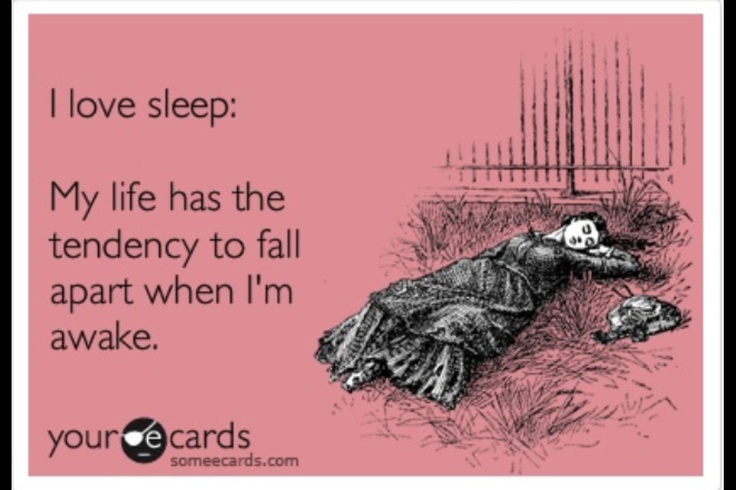
Need Help Sleeping Better? Request our FREE Sleep Hygiene Guide.
Check out the list of common causes of daytime sleepiness on the list below:
Many of us lead lifestyles that are not exactly sleep-friendly. These lifestyles affect our sleep quality and thus impact how we feel the next day. Whether you stay up late cramming for a test or out and about enjoying life with friends, the lack of sleep catches up with you eventually and all the signs that you are sleep-deprived rear their ugly faces. This includes poor decision-making skills, increased risk of an accident, and other undesirable consequences. A little bit of sleep hygiene improves habits that may negatively impact how you feel.
A little bit of sleep hygiene improves habits that may negatively impact how you feel.
Get Matched With Your Perfect Mattress
We know how hard it is to find a mattress just by reading information online.
Thats why we created a mattress finder quiz to help pair you with the perfect mattress for your sleep style and comfort preferences
One of many medical conditions causing sleepiness, sleep apnea is also very serious because it causes the sufferer to stop breathing while they sleep.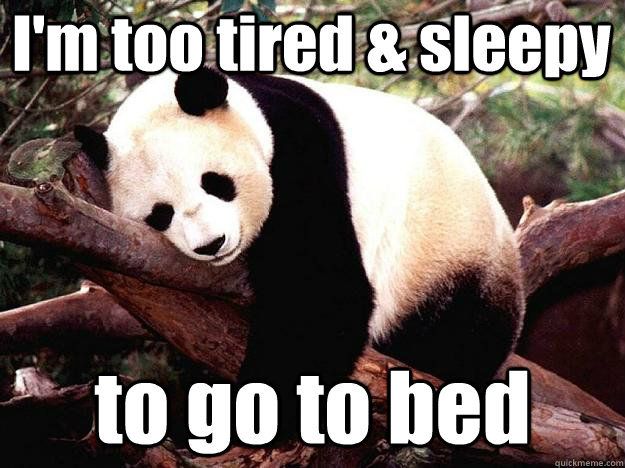 A good indication that a person suffers from sleep apnea is waking up feeling tired and unrested. Every person with sleep apnea experiences an array of symptoms. Most common is a loud snort followed by a gasp that causes the sufferer to wake from their slumber. This leads to lighter sleep stages. Some people do not remember the episodes, but instead, others notice their habits. Treatments for sleep apnea usually involves the use of a CPAP machine at home. Sleep apnea is a chronic condition, but with medical intervention, is highly manageable.
A good indication that a person suffers from sleep apnea is waking up feeling tired and unrested. Every person with sleep apnea experiences an array of symptoms. Most common is a loud snort followed by a gasp that causes the sufferer to wake from their slumber. This leads to lighter sleep stages. Some people do not remember the episodes, but instead, others notice their habits. Treatments for sleep apnea usually involves the use of a CPAP machine at home. Sleep apnea is a chronic condition, but with medical intervention, is highly manageable.
Narcolepsy causes a person to randomly fall asleep during the day. The person may be in the middle of a conversation when they suddenly nod off. Narcolepsy patients may sleep for minutes or longer and wake up and resume activities as nothing happened. Narcolepsy symptoms often appear suddenly without warning or indication of a problem. One of the four defining symptoms of narcolepsy is excessive sleepiness.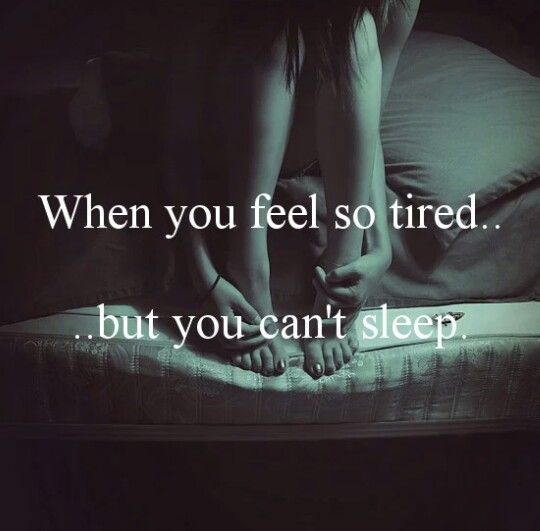 Cataplexy is another symptom of narcolepsy. Ritalin and other prescription medications may treat narcolepsy. This condition must be diagnosed and treated by a medical professional.
Cataplexy is another symptom of narcolepsy. Ritalin and other prescription medications may treat narcolepsy. This condition must be diagnosed and treated by a medical professional.
Any disorder that requires excessive movements during the day may cause you to feel tired and sleepy the following day. Restless Leg Syndrome, or RLS, is among the most common of those disorders. People of all ages and backgrounds may experience restless leg syndrome. Characterized by uncomfortable sensations (may say it feels like they are being poked with pins) RLS occurs commonly during the evening hours when a person lays down to rest. It may also worsen with age and occurs more often in older adults. Moving the legs around usually minimizes the discomfort. Your doctor has several treatment options available for RLS relief.
Circadian Rhythm is the body's natural clock. It helps coordinate the body's activities to the timing of light and dark. When the circadian rhythm is distorted, you may feel sleepy when at work or during other inappropriate times. People with these disorders may have trouble falling asleep or staying asleep. Light therapy and melatonin are two popular treatments that help get the circadian rhythm back on track, so you feel well-rested and ready to roar. Visit your doctor who can diagnose the exact condition and recommend and prescribe the best course of treatment for your specific needs.
When the circadian rhythm is distorted, you may feel sleepy when at work or during other inappropriate times. People with these disorders may have trouble falling asleep or staying asleep. Light therapy and melatonin are two popular treatments that help get the circadian rhythm back on track, so you feel well-rested and ready to roar. Visit your doctor who can diagnose the exact condition and recommend and prescribe the best course of treatment for your specific needs.
Chronic fatigue syndrome is a medical condition that still baffles doctors. The exact cause of this condition is unknown, but what experts know about it is that sufferers experience a myriad conditions and symptoms ranging from poor sleep quality, fatigue, confusion, poor decision-making skills, daytime sleepiness, and many others. Therapy, medication, and self-care often improve the condition. People of all ages experience chronic fatigue, though more common in older adults.
Everyone feels sleepy or tired from time to time, even when they slept well the night prior. When this feeling occurs often, there is a problem. Do not ignore daytime sleepiness and other sleep problems. Signs and symptoms that occur may indicate a more serious problem that needs immediate medical attention. The causes above lead to daytime sleepiness more often than others, although this list certainly is not complete. Change your lifestyle using the above information and if you are still tired all the time without any noticeable changes within a few days, schedule an appointment with your doctor to rule out or diagnose medical conditions like chronic fatigue that may cause sleepiness.
When this feeling occurs often, there is a problem. Do not ignore daytime sleepiness and other sleep problems. Signs and symptoms that occur may indicate a more serious problem that needs immediate medical attention. The causes above lead to daytime sleepiness more often than others, although this list certainly is not complete. Change your lifestyle using the above information and if you are still tired all the time without any noticeable changes within a few days, schedule an appointment with your doctor to rule out or diagnose medical conditions like chronic fatigue that may cause sleepiness.
The latest ad for the world's comfiest mattress is at it again. You stare enviously at the screen as the ad model bounds out of bed perkily when the alarm clock goes off. You can't help but wonder, "Why am I always sleepy no matter how much sleep I get?"
Before the guilt train over not being bright-eyed and bushy-tailed goes full steam ahead, we're going to put on the brakes and tell you this: Feeling groggy when you wake up is a completely normal phenomenon called sleep inertia. What's not natural is when you constantly feel tired throughout the day.
What's not natural is when you constantly feel tired throughout the day.
Maybe you think you've had enough sleep and the lingering drowsiness is a foreshadowing of a medical condition. But hold up on the health scare. Did you actually have a full night of sleep, or did your mid-afternoon cup of coffee lead to frequent middle-of-the-night awakenings? Perhaps it isn't a lack of sleep behind your low energy levels, but rather an out-of-tune body clock inciting circadian misalignment. Whatever the case may be, your sleep problems are most likely a byproduct of undersleeping rather than oversleeping.
Disclaimer: This post is not intended as medical advice. While the RISE app supports natural sleep patterns and boosts sleep hygiene, it does not treat medical conditions.
So, Why Am I Always Sleepy No Matter How Much Sleep I Get?Anyone struggling with excessive daytime sleepiness knows how much of a drag it can be on their everyday life. Cue the impaired cognitive skills, slower reflexes, weakened immune system, and poorer mood the next day. It's also a recipe for chronic diseases further down the road.
It's also a recipe for chronic diseases further down the road.
You feel like you’re sleeping a lot, so you don’t understand why you’re still tired. The reality is, you’re likely not sleeping as much as you think you are, leading to high sleep debt and/or you’re suffering from circadian misalignment.
In the next few sections, we'll talk about these two factors in detail.
Culprit No. 1: High Sleep DebtThe RISE apps shows how much sleep debt you carry on a daily basis.High sleep debt dampens your energy levels. To understand how that happens, let's clarify a few key terms:
 This is a problem confounded by sleep apps that don't peg your sleep score to your individual need. That's why we created RISE to correct this glaring oversight — it calculates your sleep need right down to the exact hour and minute.
This is a problem confounded by sleep apps that don't peg your sleep score to your individual need. That's why we created RISE to correct this glaring oversight — it calculates your sleep need right down to the exact hour and minute. If you don't meet your sleep need, leftover adenosine stays in your system, leaving the seesaw unbalanced and making you feel groggier than usual.
If you don't meet your sleep need, leftover adenosine stays in your system, leaving the seesaw unbalanced and making you feel groggier than usual.The reason you're sleepy all the time boils down to these three things:
It's fine to be sleepy at certain times of the day. As part of your circadian rhythm, you naturally have daily energy peaks and dips. (You can view the timing of yours on the Energy Schedule in the RISE app.)
But when there's sleep debt looming over your head, your energy peaks won't feel as peaky, and your dips will be a real trough. That's because your body is urging you to pay off your sleep debt and reach sleep homeostasis again so that you can feel and function at your best.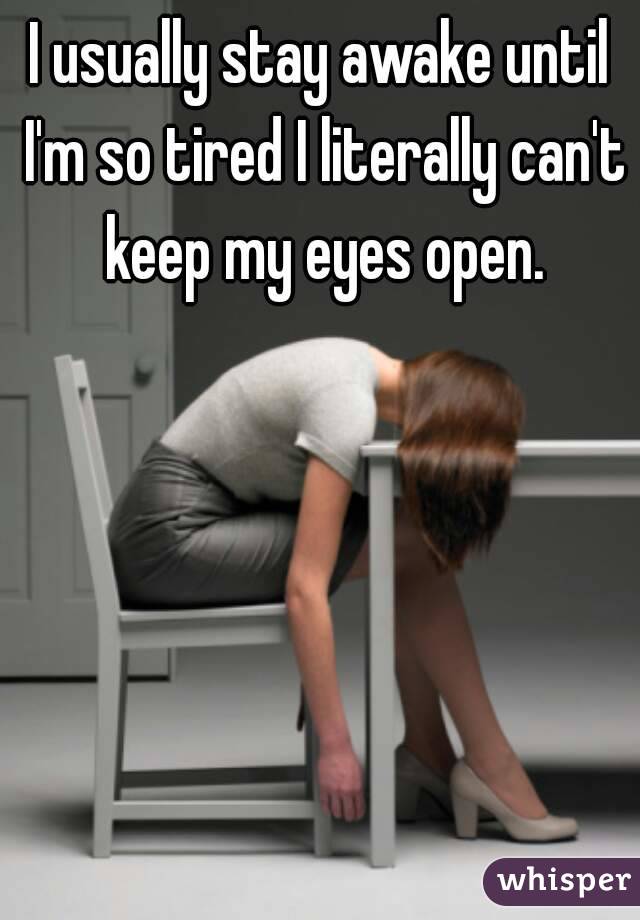
Of course, there are solutions to help you get there as quickly as you can: well-timed naps, an earlier bedtime (that's still within your Melatonin Window on the RISE app), and sleeping in up to an hour past your usual wake time.
But ultimately, to keep sleep debt at bay, you need to cultivate bulletproof sleep hygiene through positive lifestyle changes and tweaks to your sleep environment.
Culprit No. 2: Circadian MisalignmentAnother reason you might feel bone-weary tired is circadian misalignment.
Your circadian rhythm is the internal body clock that regulates vital biological processes like your sleep cycle and energy fluctuations. Going against the flow of your circadian rhythm — a later-than-usual bedtime, working the graveyard shift, etc. — incites circadian misalignment.
Daylight savings time (DST) perfectly exemplifies how a mere one-hour fast-forward/fall-back of your sleep schedule has massive repercussions on your sleep and health. Below, we share three other scenarios that regularly trigger circadian misalignment to a much greater degree in most people.
Below, we share three other scenarios that regularly trigger circadian misalignment to a much greater degree in most people.
The timing of your circadian rhythm is, in part, dictated by your chronotype. From sleeping to waking, eating to exercising, there’s a right time to carry out your daily activities if you want to be in top form. Your chronotype is why you might identify as a “night owl” or an “early bird” — with a good number of us somewhere in between these two extremes.
For many night owls, it’s likely your current lifestyle is at odds with your chronotype because we live in an early-bird world. When you’re biologically inclined to a later sleep-wake schedule, it feels excruciatingly impossible to drag yourself out of bed at the crack of dawn and fulfill work or school duties. No wonder you constantly think to yourself, "I'm always sleepy no matter how much sleep I get!"
The SolutionYour best bet is to align your lifestyle with your chronotype.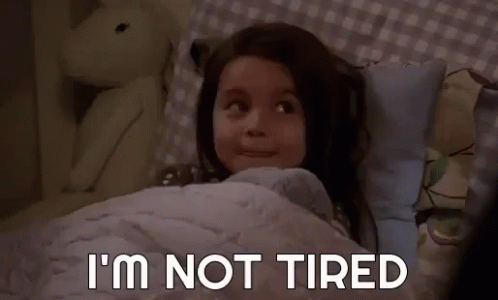 If that isn't possible, say, you're an evening chronotype with a 9-5 job, try actively shifting your circadian rhythm to match your life demands. While it's doable, take note that it requires time, effort, and consistency.
If that isn't possible, say, you're an evening chronotype with a 9-5 job, try actively shifting your circadian rhythm to match your life demands. While it's doable, take note that it requires time, effort, and consistency.
You’ve heard of (and probably have experienced) travel jet lag. But there’s another form of jetlag you may not know: social jetlag, when your social and biological clocks are out of sync.
In the past, the epitome of social jetlag was a late-to-bed, late-to-rise timetable on the weekends (or days off), only to strong-arm your internal clock into an early sleep-wake schedule during the workweek. Nowadays, with a work-from-home schedule that doesn't necessitate a consistently timed morning commute, social jetlag is a much more frequent occurrence.
Unfortunately, this form of jetlag doesn't just take a toll on your body the next day. Its backlash extends far into the future — animal models confirmed the close relationship between circadian disruption and metabolic diseases like diabetes and obesity.
Consistency is the antidote to social jetlag. If some deviation from your sleep-wake times is non-negotiable, maintain a semblance of regularity in other aspects of your daily routine.
For example, regular meal times are a solid tactic to steady your circadian rhythm. In a 2020 systematic review and meta-analysis, scientists recommended time-restricted eating (TRE), which "emphasizes the timing of eating within a limited duration" to minimize and prevent the ill effects of circadian misalignment. The paper concluded that TRE improved several metabolic metrics — such as weight gain, blood pressure, glucose levels, and cholesterol levels — for better overall health.
Scenario 3: Shift WorkShift work is one of the most prevalent triggers of circadian misalignment in modern society. Research explains the side effects that a shift worker can experience from circadian misalignment alone as well as circadian misalignment coupled with sleep debt:
 Another 2019 study highlighted that circadian disruption is linked to a greater risk of sarcopenia (progressive muscle loss).
Another 2019 study highlighted that circadian disruption is linked to a greater risk of sarcopenia (progressive muscle loss).Healthy sleep hygiene tamps down the worst of SWSD. You can also leverage certain circadian cues to bring forward or delay your sleep schedule for better circadian alignment.
For instance, light is the most potent circadian cue to start, stop, and reset your internal clock. Expose yourself to bright light (preferably sunlight) when you wake up and avoid artificial light (especially blue light) in the few hours before bed.
If possible, request rotating shifts that move forward in time. Forward shifts push your bedtime backward so you experience less circadian disruption and need less adjustment to your sleep schedule.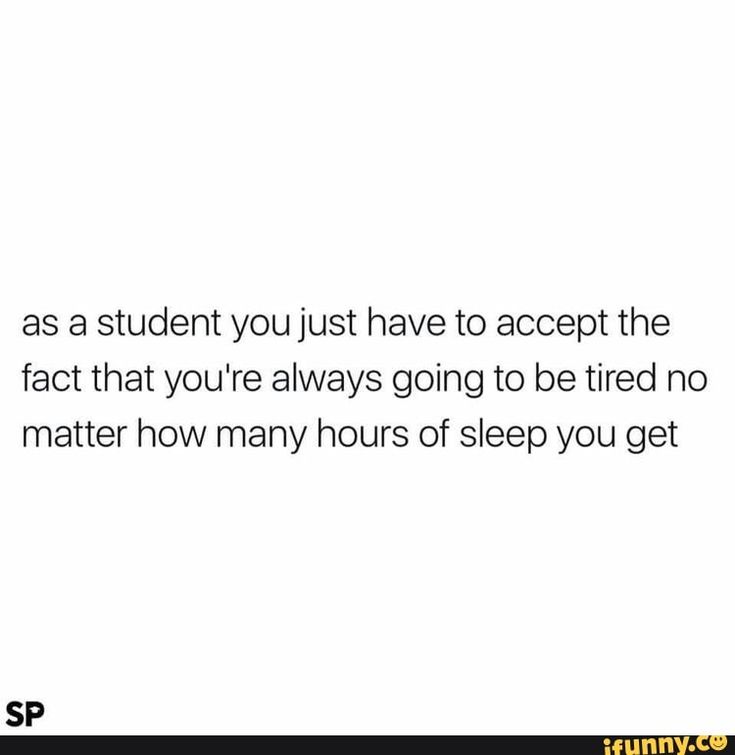
If high sleep debt and circadian misalignment aren't to blame for your persistent tiredness, there may be a chance a health condition is at work.
The tendency to sleep longer than the average person is medically known as hypersomnia or oversleeping. It's a common symptom in various medical conditions and sleep disorders such as:
Take note that symptoms, like joint pain or backaches, can also affect the amount and quality of your sleep, so you end up perpetually sleepy. The same goes for certain medications and stimulants, like antihistamines and alcohol.
Stop Feeling Sleepy All the Time With RISEFor the most part, the answer to "Why am I always sleepy no matter how much sleep I get?" is most likely hefty sleep debt and/or circadian misalignment. Very rarely would it be a chronic illness triggering hypersomnia.
Very rarely would it be a chronic illness triggering hypersomnia.
But you can stop feeling sleepy all the time with RISE, which will help you get the sleep you need and stay aligned with your body clock. Download the RISE app today so you can feel and function at your best.
One of the main biological rhythms is circadian - 24 hours. The human body is synchronized with the change of day and night, and the period from dusk to dawn is the most favorable for sleep. It is believed that 8–9hours is the optimal duration of sleep, and experts advise falling asleep before 11 pm. However, the quality of sleep depends not only on its duration and rise time.
Chronobiology as a science arose in the 18th century. It explores periodic phenomena occurring in living organisms over time. These cycles are called biological rhythms. Chronobiological works include research in the field of comparative anatomy, physiology, genetics, and molecular biology.
There are two phases: REM and non-REM sleep.
Slow-wave sleep:
Stage I 10-15 minutes. A state of dormancy.
Stage II 20 minutes. Deeper immersion in sleep, but the person remains sensitive to external sounds.
Stage III 45 minutes. The stage of deeper immersion in sleep.
Stage IV Deep sleep. 45 minutes.
REM sleep is the fifth stage of sleep, lasting about 60 minutes. A sleeping person is in the most active state, dreams can be remembered. This period is called "paradoxical", since during this phase the muscles remain relaxed, and the brain, on the contrary, is active and ready to perceive and process information. For healthy sleep, you need to go through 3-6 cycles. A lighter rise is expected at the stage of light sleep - at the 1st or 2nd stage.
For healthy sleep, you need to go through 3-6 cycles. A lighter rise is expected at the stage of light sleep - at the 1st or 2nd stage.
In accordance with these phases, various applications and gadgets work that analyze sleep and choose the most suitable period for getting up. You can calculate these stages yourself and determine the time at which you need to get up.
Therefore, if one of these phases is disturbed, or if the transition between them occurs too quickly, sleep disturbances occur, regardless of its duration. Sleep disruption not only affects daytime activities, but is also associated with various adverse health outcomes such as obesity, reduced quality of life, and even mortality.
Light from electronics sends alarm signals to the brain. The circadian rhythm seems to be particularly sensitive to short wavelength light, in particular to blue light in the 460nm range of the electromagnetic spectrum. It is emitted by gadgets, as well as energy-saving light bulbs. This light, according to a study by the international organization Sleep Foundation, delays the release of melatonin, a hormone that is produced for healthy sleep.
It is emitted by gadgets, as well as energy-saving light bulbs. This light, according to a study by the international organization Sleep Foundation, delays the release of melatonin, a hormone that is produced for healthy sleep.
Melatonin tells the body that night has come and prepares it for sleep, but the light from gadgets interferes with its production and causes anxiety. Therefore, it is necessary not to use gadgets at least an hour before bedtime and reduce the light.
Strong odors
Certain odors can interfere with your sleep. For example, the Sleep Foundation has determined that lavender lowers heart rate and blood pressure. This can potentially lead to a more relaxed state. In the study, researchers monitored subjects' brain waves at night and found that those who sniffed lavender before bed slept more soundly and felt more alert in the morning. Another study of infants found that they cried less and slept better after bathing with lavender-scented oils.
Of course, lavender is not a cure for insomnia, but having oils, candles, or sachets in the room can be soothing.
However, scents that are too strong can also disturb your sleep. In particular, detergents must be carefully selected. Some of them can cause irritation and, as a result, cause the body to be in an excited state, even if thoughts do not interfere with sleep.
Late exercise
If you do vigorous exercise before bed, your body is awake afterward, even if you feel tired and ready for bed. Muscles are in tension for at least another two hours (depending on the intensity of training). By exercising before melatonin begins to be produced (on average, the process begins at 8 pm), on the contrary, you contribute to falling asleep quickly and healthy sleep. At least two hours before bedtime, physical activity is undesirable. For example, if you go to bed at 11, sports should end at 8 pm.
Caffeine intake
Caffeine is not only found in coffee and energy drinks.
The body can excite the use of Coca-Cola, cocoa, dark chocolate, strong tea. Accordingly, other desserts containing these ingredients are also not recommended before bedtime.
Uncomfortable sleeping temperature
The thermal environment is a key factor in sleep, say National Institutes of Health researchers. Too high or low ambient temperatures can affect the sleep of even healthy people who do not suffer from insomnia. Among various thermal environmental factors, the relationship between the use of clothing and bedding in humans and animals varies greatly. The effect of temperature on sleep stages differs depending on whether subjects are semi-nude or wearing bedding and clothing. This greatly helps to maintain body temperature at an acceptable thermal level in various environments.
The optimum temperature for sleeping is 20 degrees, the room must first be ventilated. Accordingly, at this temperature, clothing and a cover should not increase your body temperature, but maintain it.
Melatonin is more actively produced in a cool, ventilated room, as blood circulation improves in such an environment.
Source: Pim Chu / unsplash.com
What are parasomnias
Unhealthy sleep can also be associated with more serious disorders - parasomnias. This is a group of sleep disorders that are characterized by unusual human behavior during this period. There are four classifications of such deviations in accordance with the phases of sleep.
The most common form of parasomnia associated with non-REM sleep. It includes sleepwalking (in other words, sleepwalking), night terrors and awakenings. The brain does not have time to move from one phase of sleep to another, being in a state of wakefulness, which causes various deviations that are not recognized by a person. Sleepwalking is the so-called sleepwalking. The human body wakes up while his brain continues to sleep, so in the morning he does not remember anything. Night terrors are common in children, however, this condition also occurs in adults.
One of the reasons may be an increased level of anxiety.
The next violation is confusional awakening associated with failures in the transition from slow to fast sleep. A person can wake up and perform some physical actions, but at the same time, he still does not perceive the world around him and may react inadequately to it, since the brain structures responsible for information processing are not yet fully functioning.
The fourth type of disorder is night eating syndrome. People can eat at night and not be aware of it. Some brain structures continue to sleep, while others make the body function. Moreover, researchers do not associate this phenomenon with a lack of food, the reasons for this behavior are still unclear.
One of the most common sleep disorders is restless leg syndrome. During sleep, discomfort occurs in the legs, provoking the awakening of a person. This often leads to chronic insomnia. If the above deviations are observed for a long time, it is better to contact a specialist.
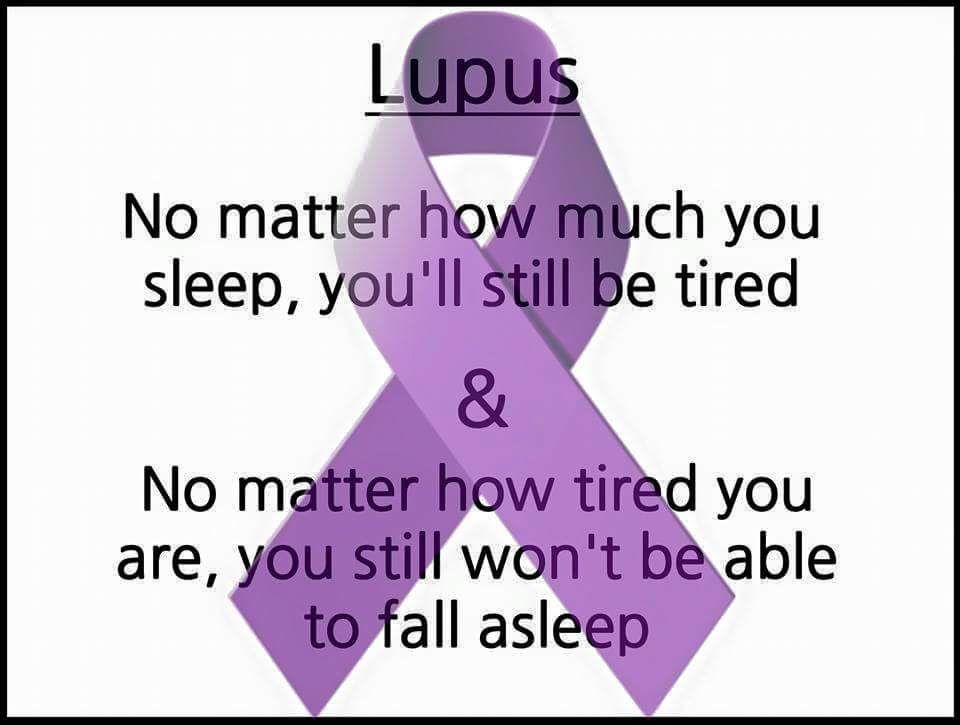
Oversleeping and undersleeping: two paths to an early grave
Subscribe to our 'Context' newsletter: it will help you understand the events.
Image copyright, Getty
Image caption,New research shows that eight hours of sleep is too much. But too much sleep, as well as too little sleep, can lead to an untimely death, scientists say. Any deviation from the golden mean increases the risk of disease and even death. Why is it so dangerous, and should we all immediately give up the opportunity to “sleep off” on a day off?
How many hours of sleep does it take for the body to fully recuperate? Most people will answer eight hours. However, recent medical studies have shown that this is too much, and too much sleep can cause health problems.
The journalists of the BBC program "More or Less" decided to find out if the usefulness of the traditional eight hours of sleep is really a myth?
Is eight hours of sleep too much?
Dr.
Greg Jacobs works at the Sleep Disorders Center at the University of Massachusetts School of Medicine. According to him, over the past decade, research has shown that eight hours of daily (or rather, nightly) sleep can harm you.
"A total of 34 different studies were conducted," says Greg Jacobs. "Doctors tracked the behaviors and health of more than two million people. It turned out that the relationship between sleep duration and life expectancy can be represented in the form of the letter "U".
"Mortality is lowest at the very bottom of the 'U' arc, and this point corresponds to seven hours of daily sleep. As you start to move away from the ideal both towards more sleep and towards lack of sleep, the risk of early death begins to rise Moreover, the risk for those who like to sleep increases faster than for those who sleep less than the norm.
So, according to Dr. Jacobs, seven hours of sleep is the ideal. Sleep less and you have a real chance of dying sooner; sleep more - and the chance of an untimely transition to another world becomes even higher.
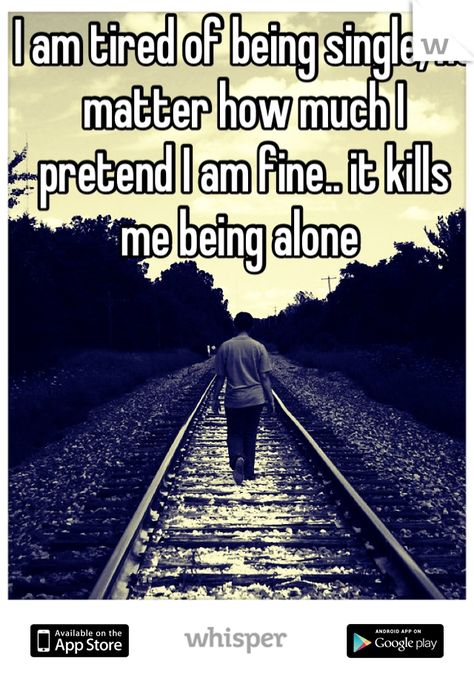
Inaccurate science
Photo author, Getty
Photo caption,It is quite difficult to calculate exactly how much we sleep: what if we dozed off in transport?
However, another sleep specialist, professor of cardiovascular medicine Franco Capuccio at the University of Warwick in Britain, advises not to panic. Anything between six and eight o'clock, from his point of view, is the norm. If only because it is extremely problematic to accurately measure the duration of sleep.
“In the study of sleep,” he says, “we tend to rely on people's own judgments. And they, for the most part, can't tell to the minute how long they've been asleep.
Image copyright, Getty
Image caption,Oversleeping is more dangerous than lack of sleep, scientists say
That's why Professor Capuccio assures you, if you, like three-quarters of the population of the United Kingdom, sleep six to eight hours a day , then you have absolutely nothing to worry about.
0007
What are the dangers of oversleeping with lack of sleep?
Anyone who sleeps less than six to eight hours or more is at risk for health problems such as high blood pressure, diabetes and cardiovascular disease.
"If you sleep more than eight hours or less than six, then the risk of developing any of the above diseases increases dramatically. And this, in turn, leads to early death," says Franco Cappuccio.
But how big is this risk? Scientists have found that among those who are chronically sleep deprived, mortality was 12% higher than among those who sleep six to eight hours in the golden mean.
Golden number seven
So how much sleep should we have? Despite the fact that in most cases it is difficult to rely on our own feelings, Greg Jacobs believes that the ideal can be calculated.
Image copyright, Getty
Image caption,If you love to lie in bed, you're probably fine
“Every spring, the National Sleep Organization in the US surveys several thousand adults.
